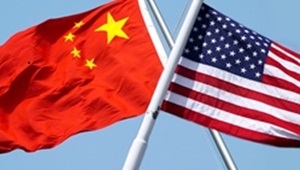The United States has proposed to raise tariffs on $200 billion worth of Chinese imports after China backtracked on an agreement arrived at after months of trade negotiations.

US will raise tariffs from 10 per cent to 25 per cent on $200 billion worth of Chinese imports effective Friday, reports citing a notice posted to the Federal Register today said.
The US Trade Representative’s office will establish a process to seek exclusions for certain products from additional tariffs, the Federal Register notice said.
The US decision follows a diplomatic message from Beijing late on Friday night, that showed systematic edits to a nearly 150-page draft trade agreement that completely undermined the agreement reached between the world’s two largest trading nations.
China had retracted on its commitments to change laws to resolve core complaints that caused the United States to launch a trade war: theft of US intellectual property and trade secrets; forced technology transfers; competition policy; access to financial services; and currency manipulation.
Chinese negotiators said they couldn’t touch the laws, with some government sources calling the changes “major.” Changing any law in China requires a unique set of processes that can’t be navigated quickly, said a Chinese official familiar with the talks. The official, however, disputed the assertion that China was backtracking on its promises.
US President Donald Trump responded in a tweet on Sunday vowing to raise tariffs on $200 billion worth of Chinese goods from 10 to 25 per cent on Friday – amidst a scheduled visit by China’s vice premier Liu He to Washington to continue trade talks.
US Trade Representative Robert Lighthizer views changes to Chinese laws as essential to verifying compliance after years of what US officials have called empty reform promises.
Lighthizer has pushed hard for an enforcement regime more like those used for punitive economic sanctions – such as those imposed on North Korea or Iran – than a typical trade deal.
Chinese foreign ministry spokesman Geng Shuang told a briefing on Wednesday that working out disagreements over trade was a “process of negotiation” and that China was not “avoiding problems”.
The reversal of a possible comprehensive trade agreement rattled global markets, affecting securities and commodities alike.




















